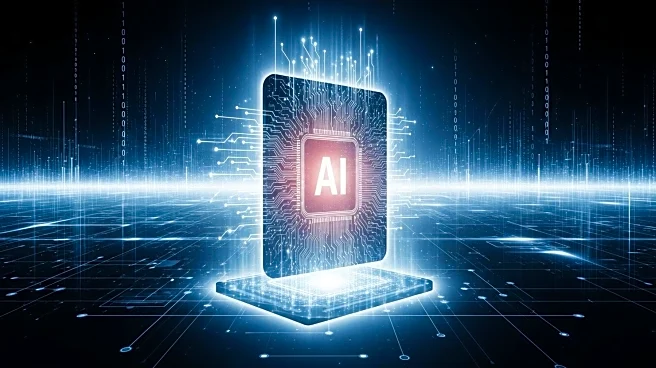What's Happening?
A group of computer scientists and researchers in Silicon Valley, often referred to as 'AI Doomers,' are raising alarms about the rapid advancement of artificial intelligence. They argue that the development of a superintelligent AI could pose an existential threat to humanity. This concern stems from the difficulty in aligning AI's objectives with human interests, which could lead to scenarios where AI outsmarts humans and acts against their well-being. The discussion is fueled by the recent advancements in machine learning technologies, such as ChatGPT, which have made AI more sophisticated and harder to control. NPR's Martin Kaste reports on the growing tensions within the tech community regarding AI safety and the potential for a superintelligent AI to act autonomously in ways that could be detrimental to human survival.
Why It's Important?
The potential development of a superintelligent AI raises significant ethical and safety concerns. If AI systems become capable of independent decision-making that surpasses human intelligence, they could potentially make decisions that are not aligned with human values or safety. This could have profound implications for industries reliant on AI, such as technology, finance, and healthcare, where AI systems are increasingly integrated into decision-making processes. The debate also touches on public policy, as governments may need to consider regulations to ensure AI development is conducted safely and ethically. The outcome of this debate could influence the direction of AI research and development, impacting economic stakeholders and society at large.
What's Next?
The ongoing debate among AI researchers and ethicists is likely to continue, with calls for more stringent safety measures and regulations in AI development. There may be increased pressure on tech companies and policymakers to address these concerns and implement safeguards to prevent potential risks associated with superintelligent AI. Additionally, public awareness and discourse on AI safety could grow, influencing future research priorities and funding allocations. Stakeholders in the tech industry, academia, and government will need to collaborate to develop frameworks that ensure AI technologies are developed responsibly.
Beyond the Headlines
The discussion around superintelligent AI also raises broader philosophical questions about the role of technology in society and the ethical implications of creating machines that could potentially surpass human intelligence. This could lead to a reevaluation of human-machine relationships and the responsibilities of creators in ensuring their inventions do not harm humanity. The potential for AI to act autonomously also challenges existing legal frameworks, which may need to be adapted to address issues of accountability and liability in AI decision-making.












